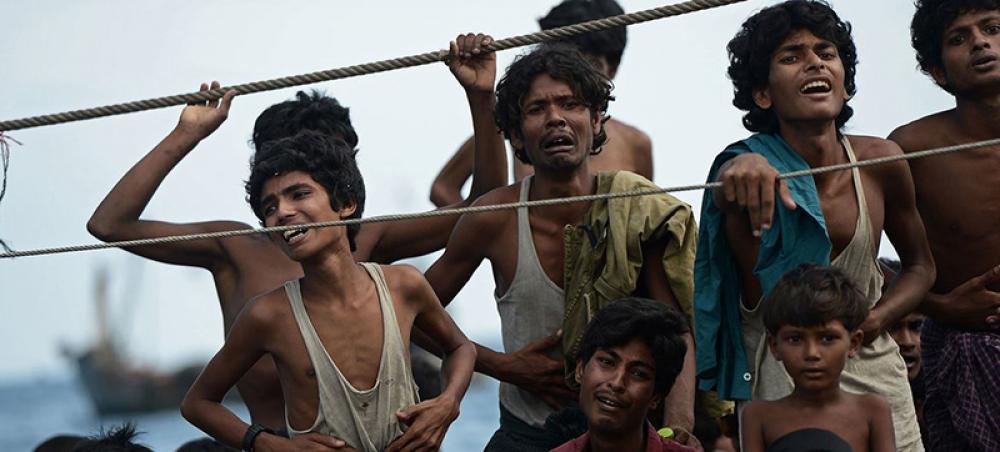Just Earth News | @justearthnews | 24 May 2022

Image: UNHCR/Christophe Archambault
New York: The UN refugee agency, UNHCR, has said it is shocked and saddened by reports that more than a dozen Rohingya – including children – have perished at sea off the coast of Myanmar over the weekend.
Initial reports suggest the boat left Sittwe in Rakhine State, Myanmar, last Thursday, the agency reported, and the vessel encountered bad weather in waters off the coast of the Ayeyarwady Region, causing it to capsize near the coast of Pathein township on Saturday.
At least 17 people are feared dead, with distressing reports of bodies found on the shore, leaving local communities to bury the dead.
“The latest tragedy shows once again the sense of desperation being felt by Rohingya in Myanmar and in the region,’’ said Indrika Ratwatte, UNHCR’s Director for Asia and the Pacific.
“It is shocking to see increasing numbers of children, women and men embarking on these dangerous journeys and eventually losing their lives.”
Information on survivors
In Myanmar, UNHCR is urgently seeking more information on survivors that have arrived on shore, in order to assess their situation.
Over the past decade, thousands of Rohingya have left by sea from the refugee camps in Cox’s Bazar, Bangladesh and Rakhine State in Myanmar.
“The root causes of these deadly journeys need to be addressed”, said Mr. Ratwatte. “Additionally, all countries in the region must come together to ensure the rescue and disembarkation of all those in distress at sea”.
UNHCR reiterates its warning that “collective failure to act will continue to lead to tragic and fatal consequences. It is imperative to take action against criminals, smugglers and traffickers who prey on the most vulnerable.”
Bangladesh flooding leaves 1.5 million children at risk
Meanwhile, extensive floods in neighbouring Bangladesh have put 1.5 million children at risk of disease, drowning and malnutrition, the UN Children’s Fund (UNICEF), said on Monday.
The UN agency is already working with the Government and civil society partners to respond to families’ most urgent needs in northeast regions, by supplying clean water, hygiene kits, therapeutic milk and learning kits for youngsters unable to go to school.
Over four million people in five regions have been affected by the rising waters.
The worst-hit - Sylhet and Sunamganj – have seen agricultural land and critical infrastructure submerged, including power stations and schools.
Cases of diarrhoea, respiratory infection and skin disease have been reported, according to a UNICEF update, and at least three children have died from lightning strikes.
Awareness-raising about the dangers of drowning is also central to UNICEF’s community response, it said.
Children the most vulnerable
Hundreds of schools have been closed, further jeopardizing children’s education. After 18 months of COVID-related closures in the last few years, children are once again missing out on learning, the agency added.
“The damage to lives, homes and schools is heartbreaking. In this disaster, as in most others, children are the most vulnerable. UNICEF is on the ground to protect children and to meet their urgent needs, supporting the Government and working closely with our local partners,” said Sheldon Yett, UNICEF Representative to Bangladesh.
UNICEF is working closely with the Department of Social Services to ensure that social workers stand ready to protect the safety and security of children.